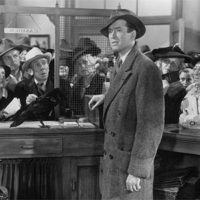
Do you want to improve the relationships of your life?
Tremendously improve them. Every. Single. One.
Whether in business, ministry, marriage or friendships – whether you are a leader or serve on a team – if you improve in one area, every relationship of your life will improve. Guaranteed.
How, you ask?
I’ll tell you how.
Become a better listener.
That’s it. And, it sounds simple, but if you’re honest, you know it is not.
Listening is a dying art. There are truly few good listeners in the world it seems these days. We hear lots, but we listen so poorly. And, in fairness to all of us, there is far too much noise to really listen.
The word listen is defined so much stronger than just to hear. There’s an attentiveness. An intentional effort. A designed purpose for hearing.
And, one secret to improving every relationship is to improve your own listening skills.
And, in full disclosure, I’ll admit I’m not one of those naturally skilled at listening. Ask my wife. And, she actually is an expert listener. I’m quick to find an answer, assume I know what you’re going to say, or grow impatient if I think you’re taking too long to share the details.
I know how to listen. I was supposedly trained in one of my master’s degrees. In being trained to be a counselor, we were taught how to listen. It’s important for the profession. Knowing how and actually doing it are not always equal functions. Again, ask my wife. (And, by the way, I was never a very good counselor and that was probably one of the primary reasons. I was too eager to fix problems at times.)
But, enough about my poor listening skills, the question before we proceed is do you want to be a better listener?
Or, maybe a better question, do you want to improve all the relationships in your life?
I do. It’s actually a matter of personal discipline I try to practice – when I remember to do so. I can tell you how or – at least some ways from the training I’ve received. If you’ll read with an intent to listen you might learn some tips, which will help you improve every relationship in your life.
Here are 5 steps to being a better listener:
Genuinely want to hear.
This is where it all starts. The most important one. Usually this one alone makes all the difference. It’s true in every relationship – including our relationship with God. We have to want to hear what the other person has to say. Not what we hope they say or think they are going to say, but what are they actually saying.
And, the more we want to hear the more intentional we will be to listen.
Think of it this way – if someone was talking about a potential job you really wanted you’d listen for every detail you could glean. If you were a single guy pursuing the girl of your dreams and overheard someone talking about her – you’d listen. Really listen. You’d want to hear every detail. You’d soak up every morsel you could possibly attain.
The process of getting better at listening begins when we value the relationship enough to truly want to hear; so much that we listen. When we truly care enough about the subject or the person communicating that we’ll discipline yourself to listen.
Don’t try to respond until the other party is finished.
This is so huge. It’s one I’m most guilty of doing wrong. Once again, just ask my wife.
But, it is so damaging to good listening when we interrupt. (Now there are actually counseling techniques, which can help direct a person’s thoughts when they are rambling, but that’s not what I’m referring to here.) This means you don’t finish their sentences – even in your mind. When you do you come to false conclusions – and it devalues what the other person is trying to communicate.
We don’t assume we know what the other party is saying before they even say it. We have to stop completing thoughts in our own mind and actually listen. It devalues the person and their message when we don’t give them time to deliver it – in their way of communicating. And, yes, it takes longer for some than others.
And, this is not to say some people can’t improve in learning to share their story. And, not ramble so much. But, this is a post about listening. And, for that, if we truly value the other person, we need to discipline ourselves to hear, even if a person isn’t yet a master at communicating.
Slow down.
Some people think they listen faster than they actually do. Yea, I’m one of those too.
For good listening, it’s important to remove any distractions. Put the phone down. Turn off the television. Close the laptop. This is not the time to show you’re good at multitasking. In the office environment, I have learned I need to step away from my desk and take notes, as I attempt to listen. Even if I could genuinely hear everything being said it communicates I’m listening when I am removed of obvious potential distractions.
Make sure the time and place is adequate also. You may need to schedule an appointment to make sure you are completely available to engage. You may not always be “available” to listen when someone is ready to share. Properly listening takes time. Be honest.
I’ve had to be honest with people when my immediate schedule just wouldn’t accommodate the time they deserve to adequately listen to their story — such as a few minutes before I was about to preach on Sunday mornings. So we could schedule a time – or, sometimes we could schedule a time with someone else completely. Maybe I wasn’t even the right person. But, that doesn’t eliminate the person’s need for someone to listen.
(By the way, I’ve learned in leadership, many times conflicts are eliminated or diminished when people feel someone in leadership has actually listened to their concerns.)
Focus on the voice.
I’m using the word “voice” as a descriptor of the one who is hoping you will listen. Give them your undivided attention.
Look into the person’s eyes. Watch for their body language. We are all unique in how we communicate. Strive to understand their unique style. Engage with them with appropriate responses. A nod of the head when appropriate communicates you are listening.
I often tell people in advance, for example, that taking notes helps me listen better. Then I can refer back to something later in the conversation if I didn’t completely understand.
(Another leadership tip I especially give younger leaders. Never show up to a meeting with someone you are hoping to listen to for advice or wisdom without something on which to write what they share. That communicates you intend to listen also – and, it helps you remember what they said later.)
Ask questions.
Here’s the foolproof way to make sure you actually heard what was intended and that you were actually listening. (This is where they trained us to be good counselors — and it works.)
Especially if you have any doubts of what the person means, simply ask. Get clarity. Asking questions is one of the best ways to communicate that you care and that you are truly listening. And, it helps eliminate misunderstandings.
Try questions such as, “So is what I hear you saying is…?” “Is this what you mean…?” And, then repeat back in your own words what you think the person is saying. Additionally, look for more than is being said. Many times questions help pull out what the other person thought was clear, but wasn’t. Then ask better questions to get to what they are actually trying to communicate.
This last one is so important in leadership. Sometimes in the pace of life we fail to actually listen to what people have to say. I always believe the answers are in the room if we take time to truly listen to what people have to say.
Here’s to better listening. I don’t know about you, but I could stand to improve in this area.
What tips do you have?








 Logging you in...
Logging you in...
 Loading IntenseDebate Comments...
Loading IntenseDebate Comments...
Ron, I'd like to commend you on a great article. You kept it simple and clear. I also have to tell you that I identified strongly with your first paragraph, as I, too, am not a naturally good listener, and I, too, was a clinical social worker for a long time before I realized that I am too eager to fix things for people rather than help them work solutions out thru really understanding and reflecting. Having come from a family of poor listeners, I can easily attest to your principles of good listening. I wish more people would try this. For me, it's still a work in progress at age 63, but each day is a little better than before. When you really listen to others, your relationships improve, and so does everything else. Thanks again for posting this.
Thank you. Have a great new year.